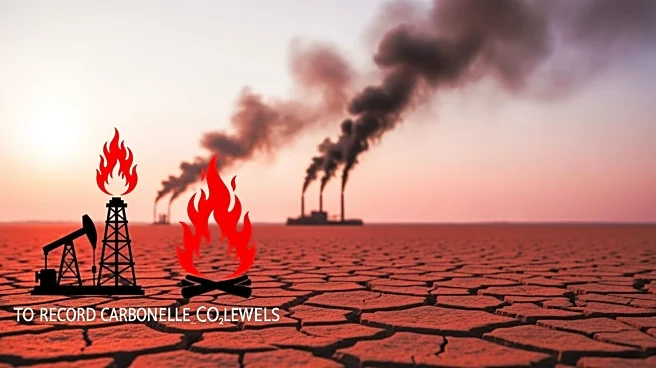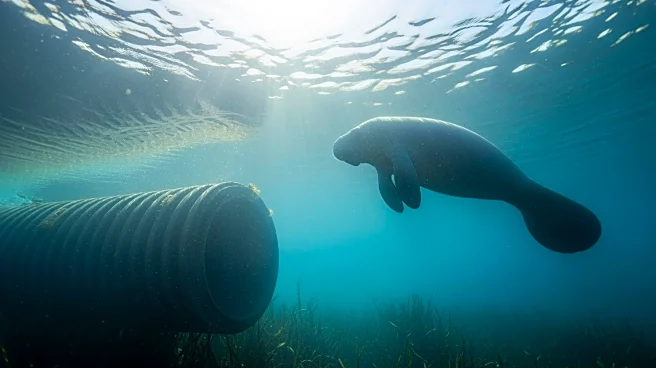What's Happening?
The World Meteorological Organization (WMO) has reported a significant increase in atmospheric carbon dioxide levels in 2024, marking the largest annual rise since modern measurements began in 1957. The global average concentration of CO2 surged by 3.5
parts per million, reaching 423.9 ppm. This increase is attributed to ongoing fossil fuel emissions, a surge in emissions from wildfires, and a reduction in the carbon uptake by the world's lands and oceans. The recent El Niño weather pattern exacerbated the situation by increasing global temperatures and reducing carbon absorption, particularly in regions like the Amazon. The WMO warns that excess CO2 will have a warming effect on the planet for centuries, leading to more extreme weather conditions.
Why It's Important?
The record increase in CO2 levels highlights the urgent need for global efforts to reduce fossil fuel emissions and address the impacts of wildfires. The rise in atmospheric CO2 is a significant contributor to climate change, which poses threats to ecosystems, human health, and economic stability. The reduction in the planet's ability to absorb carbon could lead to a long-term trend of worsening climate conditions. This situation underscores the importance of international cooperation in implementing effective climate policies and investing in sustainable practices to mitigate the effects of climate change.
What's Next?
The WMO's report may prompt governments and environmental organizations to intensify their efforts in combating climate change. Potential actions include stricter regulations on fossil fuel emissions, increased funding for wildfire prevention and management, and initiatives to enhance carbon absorption by natural ecosystems. The scientific community will likely continue monitoring CO2 levels and the planet's carbon uptake capacity to better understand the long-term implications of these trends. Public awareness campaigns may also be launched to encourage individual and collective actions towards reducing carbon footprints.
Beyond the Headlines
The record CO2 levels raise ethical and cultural questions about humanity's responsibility towards the environment. The disproportionate impact of climate change on vulnerable communities calls for a reevaluation of global equity in climate action. Legal frameworks may need to be strengthened to hold industries accountable for their environmental impact. Additionally, cultural shifts towards sustainable living and conservation could play a crucial role in addressing the climate crisis.

















